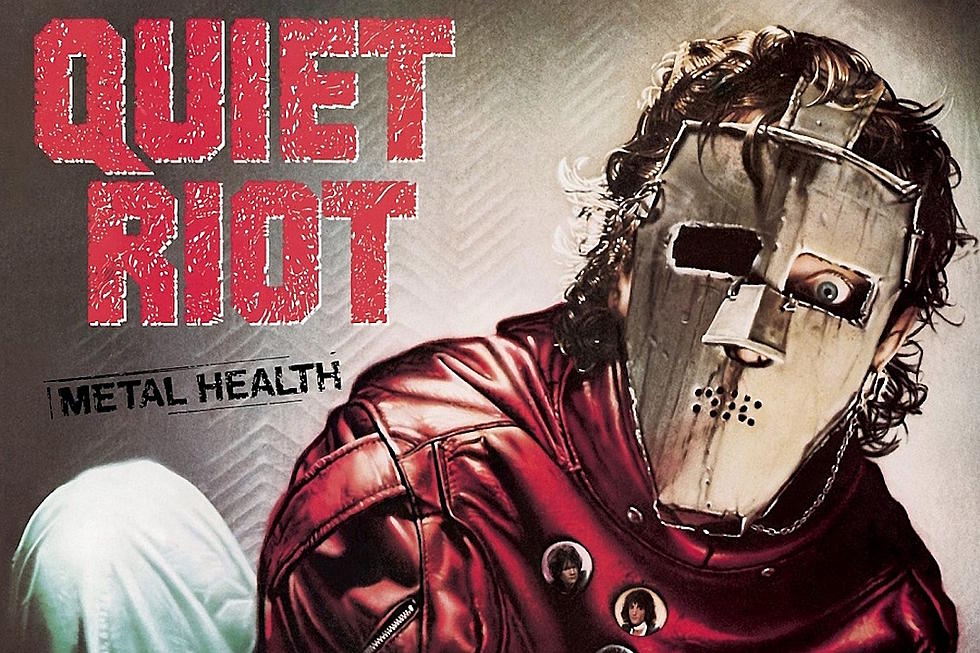
How Quiet Riot’s ‘Metal Health’ Brought Metal to the Mainstream
Quiet Riot took metal to the mainstream with the release of Metal Health on March 11, 1983.
The record became the first heavy metal disc to capture the top spot on Billboard's Top 200 Albums chart, selling over six million copies and rocketing Quiet Riot to the top of the metal heap. But the group's fall from grace would prove just as sudden; fueled by alcohol, drugs, ego and money, they crashed and burned in one of the most spectacular downward spirals in rock music history.
Though most fans hadn't heard of them prior to Metal Health, Quiet Riot were, in fact, veterans of the rock scene, having released two albums in Japan that featured a young guitarist named Randy Rhoads.
After losing Rhoads to Ozzy Osbourne and rock immortality, lead singer Kevin DuBrow struggled through a series of unsuccessful tries at other projects before resurrecting Quiet Riot with a new lineup, this time featuring drummer Frankie Banali, bassist Rudy Sarzo and guitarist Carlos Cavazo.
READ MORE: Top 30 Glam Metal Albums
The group signed a production deal with producer Spencer Proffer, who recorded their new album and got them signed to CBS. The new album – Quiet Riot's American debut – featured a cover version of the Slade classic "Cum on Feel the Noize," which the band were initially reluctant to record.
Watch Quiet Riot's Video for 'Cum on Feel the Noize'
The track turned out so well upon its release as a single, however, that it rocketed to No. 5 in the Billboard charts. Helped in no small part by the band's heavy exposure at MTV, "Cum on Feel the Noize" and the title song "Metal Health (Bang Your Head)" launched Metal Health into the stratosphere.
How Did Things Go Wrong for Quiet Riot?
But as Quiet Riot experienced the first rush of success, they also began to feel that the financial rewards of their success were smaller than they deserved.
Though the musicians were raking in a fortune, it was a smaller fortune than they had imagined, and they blamed Proffer and the deal they had signed with him – especially DuBrow, who vented his frustration with the situation by granting a series of interviews in which he lambasted his record label, the press and even many of his fellow L.A. metal bands, whom he said were merely riding Quiet Riot's coattails.
"It was like I took a target, aimed it around my foot and shot," DuBrow admitted in an episode of Behind the Music. "And not only did I do this in one interview, I proceeded to do it in countless interviews. And no one could tell me to shut up."
Watch Quiet Riot's Video for 'Metal Health (Bang Your Head)'
The backlash that came from DuBrow's lack of diplomacy – as well as record company pressure to hurry a follow-up into the marketplace – resulted in the group's next album, Condition Critical, coming off as merely a pale re-write of Metal Health – right down to another Slade cover, "Mama Weer All Crazee Now." Though it sold three million units, it disappeared quickly, and the group began a Spinal Tap-ish fall from grace that saw them eventually fire DuBrow and continue unsuccessfully with different lineups.
After suing the band over use of the name, DuBrow ultimately re-formed Quiet Riot, releasing Terrified in 1993. The Metal Health-era lineup got back together in 1997, but the band's moment in the sun had long since passed. They toured at the club level for several years, before calling it quits again in 2003.
READ MORE: Quiet Riot's Post-'Metal Health' History
DuBrow formed yet another Quiet Riot lineup for an album titled Rehab in 2006, which came and went with barely a commercial whimper. Then, DuBrow was found dead on Nov. 27, 2007 in his apartment in Las Vegas. It was later determined that he had died of a cocaine overdose approximately six days previously.
That appeared to be the final blow for Quiet Riot, until Banali announced a new lineup in September 2010. The band began regularly touring, through with several different singers. Banali died of pancreatic cancer in August 2020, but Quiet Riot has continued (as was the drummer's wish).
More From Talk Radio 960 AM
![Awesome 1970s Song about Holly Beach, Louisiana – ‘The Cajun Riviera’ [VIDEO]](http://townsquare.media/site/29/files/2016/03/hqdefault10.jpg?w=980&q=75)




![Drone Footage Shows Dramatic Flooding In Bossier City, LA [VIDEO]](http://townsquare.media/site/34/files/2016/03/Screen-Shot-2016-03-11-at-6.37.49-AM.png?w=980&q=75)




